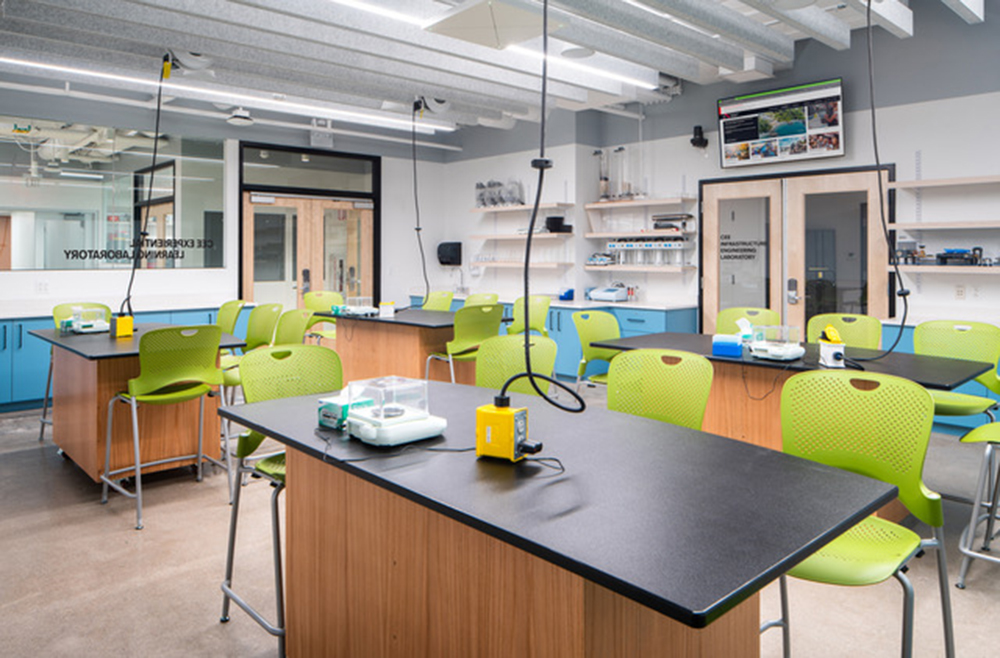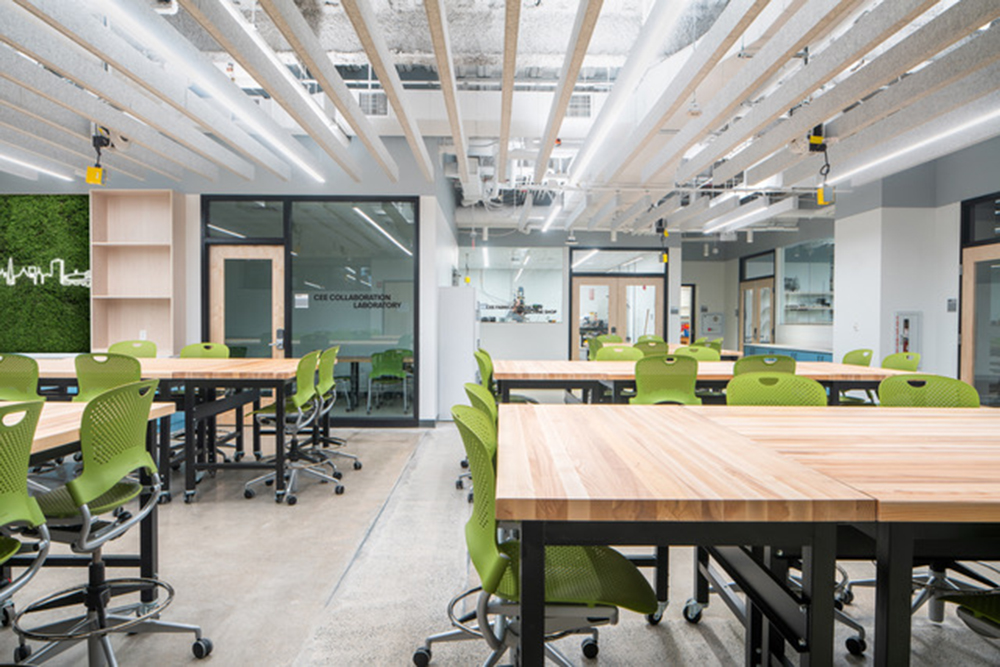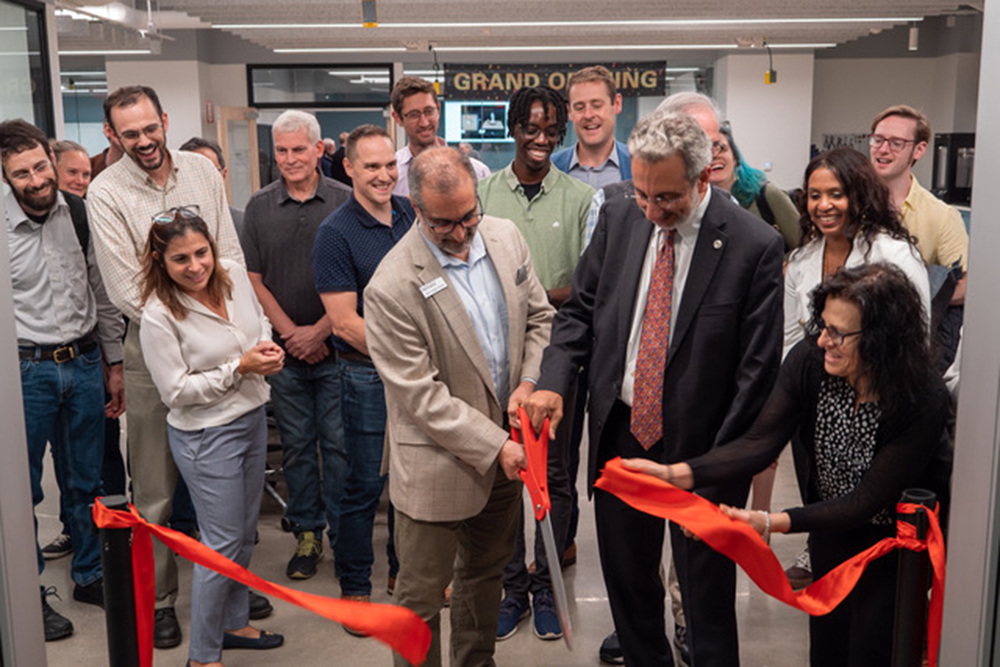Dyer Brown & Associates completes CEE studio at Northeastern University

Boston, MA National experts in design for higher-ed facilities Dyer Brown & Associates has completed a reimagined setting for building the cities of tomorrow: the Civil and Environmental Engineering (CEE) Innovation Studio at Northeastern University.
The transformed space is already having a big impact on the experience of students and faculty, with fabrication equipment and environmental graphics in a flexible academic setting. According to project stakeholders, including the design team and university leaders, the CEE Innovation Studio is expected to boost recruitment prospects for a department with ambitions to contribute to evolving paradigms of urban design and infrastructure.
“University leaders wanted a showcase space, and an environment that supports innovative problem solving,” said Maggie Mitchell IIDA, associate and senior interior designer with Dyer Brown, which has designed a number of interior renovations for Northeastern as well as for other major institutions including Boston University, and Emory University in Atlanta. “By introducing transparency with a glass wall along the corridor we hoped to make the Innovation Studio a more visible and engaging part of academic life on campus. The majority of our effort as designers went into planning space utilization, to make the best use of the available footprint.”
Prior to the renovation the 5,000 s/f studio featured a large multipurpose space with room dividers, an environmental lab, one classroom, and a fabrication facility. Dyer Brown led a team to demolish much of the interior architecture and realign the programming, now anchored by the CEE Build Space – a reconfigurable setting geared for developing and building innovative civil and environmental engineering materials, components and systems, visible through the new glass entrance.
 The redesigned studio also features a new Experiential Learning Laboratory featuring movable lab benches. The studio also includes a reimagined fabrication facility, two “flex labs” for faculty and student use, and space for storage. New furniture for the studio emphasizes flexibility, with stacking chairs, movable tables, and plug-and-play pods for connecting to electricity.
The redesigned studio also features a new Experiential Learning Laboratory featuring movable lab benches. The studio also includes a reimagined fabrication facility, two “flex labs” for faculty and student use, and space for storage. New furniture for the studio emphasizes flexibility, with stacking chairs, movable tables, and plug-and-play pods for connecting to electricity.
According to Mitchell, the environmental lab is in the same location as before, the layout unchanged to leave fume hoods, gas lines and other lab elements unmoved. The infrastructure lab also remains in the same corner location to avoid having to relocate the shaker table secured to the foundation (used to test objects for seismic engineering) but has been completely enclosed for acoustical separation from the rest of the studio. Dyer Brown’s design solution replaces a metal roll-up door with new windows for bringing in natural daylight and connecting visually with the campus.
Dyer Brown also designed new interior signage and environmental graphics for the CEE Innovation Studio. The visual themes reflect the CEE department mission: a stylized Boston skyline with waveforms represents urban design innovation, which will be applied to a moss wall to emphasize sustainability and environmental responsibility.
Mitchell said, “We were very fortunate to be able to get input from students, staff, and faculty prior to design work. Their collaboration in visioning helped make the project a huge success, producing a learning and build space everyone can be proud of.”
Nobis Group awards Robinson and Moreira STEM scholarships


The rise of incubators and co-working spaces: The latest in life sciences - by Matt Combs

Careers in Construction Month focus on training and safety - by Joe Camilo

The design-build advantage: Integrated interior design solutions - by Parker Snyder








